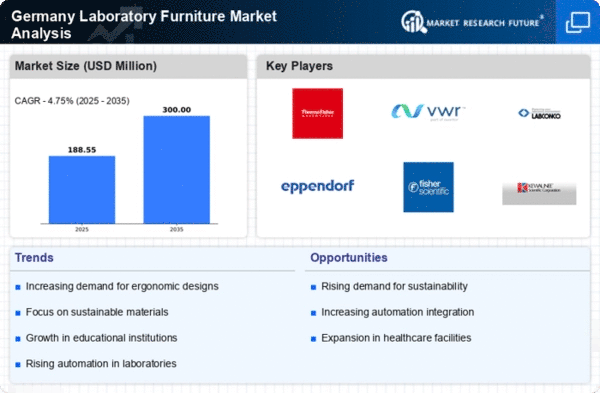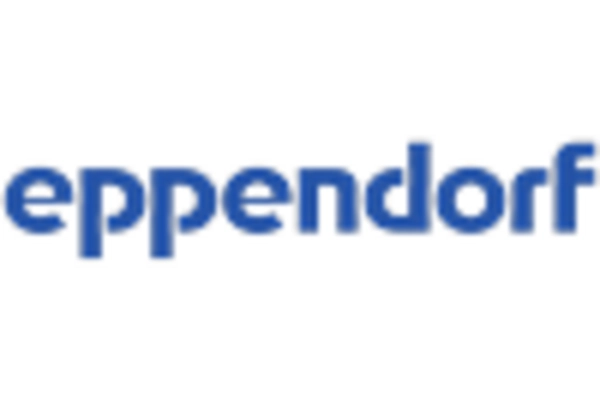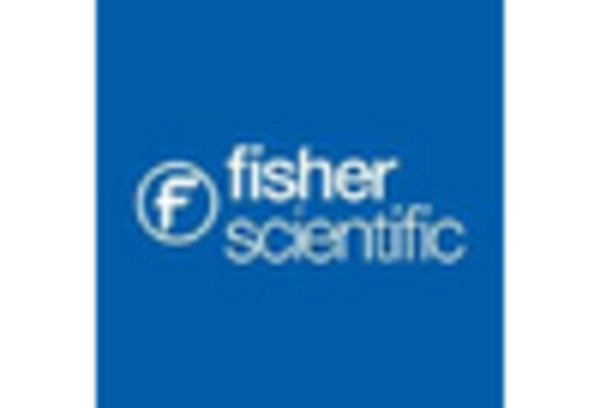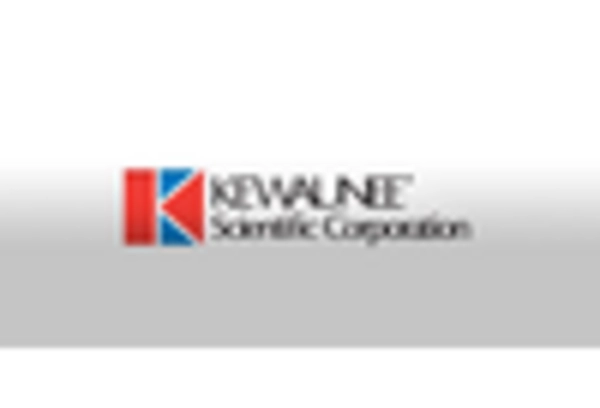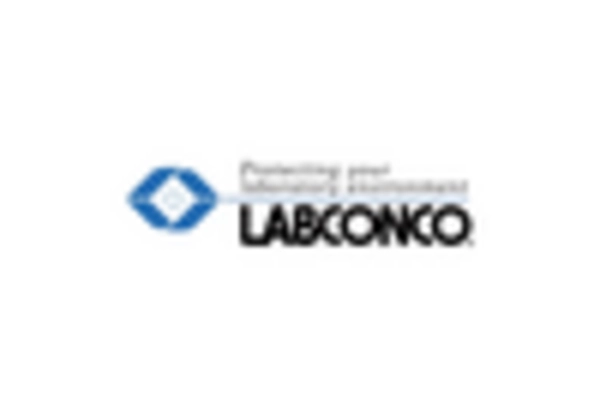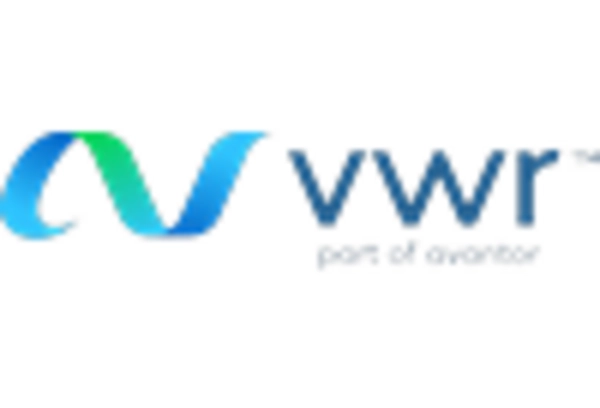Growth of Educational Institutions
The growth of educational institutions in Germany is significantly impacting the laboratory furniture market. As universities and vocational schools expand their science programs, the demand for laboratory spaces and corresponding furniture is on the rise. Recent statistics indicate that enrollment in STEM (Science, Technology, Engineering, and Mathematics) programs has increased by 25% over the last decade. This surge necessitates the outfitting of new laboratories with appropriate furniture that supports hands-on learning and experimentation. Consequently, manufacturers are responding by offering a range of educational laboratory furniture solutions that are both functional and cost-effective. The laboratory furniture market is likely to benefit from this trend as educational institutions continue to invest in their facilities.
Rising Demand for Research Facilities
The laboratory furniture market in Germany is experiencing a notable surge in demand. This is due to the increasing establishment of research facilities.. This trend is driven by both public and private investments aimed at enhancing scientific research capabilities. According to recent data, the number of research institutions in Germany has grown by approximately 15% over the past five years. This expansion necessitates the procurement of specialized laboratory furniture to accommodate advanced research activities. Consequently, manufacturers are focusing on producing versatile and adaptable furniture solutions that cater to the unique needs of various research environments. The laboratory furniture market is thus poised for growth as these facilities require high-quality, durable, and functional furniture to support their operations.
Sustainability and Eco-Friendly Practices
Sustainability is becoming a pivotal driver in the laboratory furniture market in Germany. As environmental concerns gain prominence, laboratories are increasingly seeking eco-friendly furniture options made from sustainable materials. This shift is reflected in the growing demand for furniture that adheres to green building standards and utilizes recyclable materials. Manufacturers are responding by developing products that not only meet functional requirements but also align with sustainability goals. The market is projected to see a growth rate of approximately 15% as laboratories prioritize eco-friendly practices in their operations. This trend highlights the importance of sustainability in the design and production of laboratory furniture, influencing purchasing decisions across various sectors.
Technological Advancements in Laboratory Design
Technological advancements are significantly influencing the laboratory furniture market in Germany. Innovations in design and materials are leading to the development of furniture that not only meets functional requirements but also enhances the overall laboratory environment. For instance, the introduction of modular furniture systems allows for flexible configurations, which can be easily adapted to changing research needs. Furthermore, the integration of advanced materials, such as antimicrobial surfaces, is becoming increasingly prevalent. This shift towards modern design and functionality is expected to drive market growth, with projections indicating a potential increase in market value by 20% over the next five years. As laboratories seek to optimize their spaces, the demand for innovative furniture solutions is likely to rise.
Increased Focus on Health and Safety Regulations
The laboratory furniture market in Germany is being shaped by a heightened focus on health and safety regulations. Regulatory bodies are enforcing stricter guidelines to ensure safe working environments in laboratories. This has led to an increased demand for laboratory furniture that complies with these regulations, such as chemical-resistant work surfaces and ergonomic designs that promote user safety. As a result, manufacturers are investing in research and development to create furniture that meets these stringent standards. The market is expected to grow as laboratories prioritize compliance with health and safety regulations. This could potentially lead to a market expansion of around 10% in the coming years.. This trend underscores the importance of safety in laboratory settings and its impact on furniture design.


